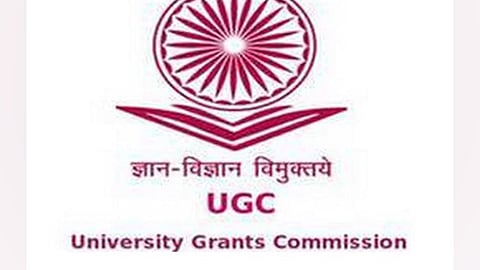

NEW DELHI: With the aim to promote internationalisation in Indian higher education, the University Grants Commission (UGC) on Saturday introduced a new set of regulations for the easy recognition and equivalence of foreign qualifications.
UGC Chairman, Prof. M Jagadesh Kumar, said, “Many students return with international qualifications need to be seamlessly integrated into India's higher education system or workforce. Such students need a structured procedure to evaluate foreign credentials without unpredictable delays and procedural ambiguity.”
Acknowledging this challenge, he said, the UGC has decided to establish a standardized equivalence framework by bringing in a new regulation.
Kumar also said that UGC has developed a transparent, technology-driven mechanism for recognizing foreign qualifications from schools and higher education institutes.
Speaking to TNIE, he said, “This move is crucial given the National Education Policy (NEP) 2020’s vision of transforming India into a global study destination. If Indian institutions are to attract international students, we must ensure fair recognition of degrees earned abroad."
“By addressing a long-standing issue, UGC has taken a decisive step through this significant reform toward making India’s higher education system more inclusive, competitive, and future-ready,” he added.
The rules are expected to significantly benefit Indian students who study abroad and seek to continue their academic or professional journey in India.
However, the regulations titled (Recognition and Grant of Equivalence to Qualifications Obtained from Foreign Educational Institutions) Regulations, 2025, do not apply to professional qualifications in disciplines such as Medicine, Pharmacy, Nursing, Law, and Architecture - areas governed by respective statutory councils in India.
The UGC has clarified that equivalence will be granted to qualifications awarded by foreign institutions that are duly recognised in their home countries.
The UGC allows for the recognition of qualifications obtained from offshore campuses of foreign educational institutions, provided if they meet specific criteria.
The regulations which will streamline the process of recognising and granting equivalence to academic qualifications obtained from foreign educational institutions also prescribe foreign school-level qualifications for admission into undergraduate and equivalent programmes in Indian institutions, subject to prescribed conditions.
This is expected to ease transitions for students moving to India after completing secondary education abroad.
However, it draws a firm line against qualifications obtained through franchising arrangements.
The regulation stated that these will not be eligible for equivalence.
This includes institutions listed by designated accreditation or recognition agencies.
The UGC said that the final regulations were shaped after “careful consideration of the extensive public feedback received on the draft regulations issued in 2023,” reflecting a consultative and inclusive policy-making process.
The UGC will also operate a dedicated online portal for receiving and processing applications for equivalence certificates.
A Standing Committee of experts will examine these applications and make recommendations. If an applicant is dissatisfied with a decision, they may seek a review through a Review Committee constituted by the UGC.
Equivalence certificates issued under the regulations will be valid for the purpose of pursuing higher education and research in India, as well as for employment opportunities.